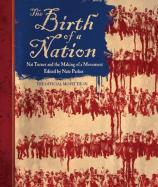The Birth of a Nation: Nat Turner and the Making of a Movement
Review
The Birth of a Nation: Nat Turner and the Making of a Movement
Nat Turner was descended from the Akan people of Ghana, before his grandmother was captured and enslaved under the brutalities of the American slave trade. Turner would be remembered, though only cursorily prior to Nate Parker’s endeavors, as a Virginian slave who led a violent slave rebellion in 1831. It was one of the first and largest slave rebellions in American history. White people were killed, as were many of Parker’s companions, and he was eventually captured himself: hanged, shot, burned and made an example of. His story has been largely erased from history, and when it’s remembered, he’s often dismissed as mad or bloodthirsty. This stigma is a continuation of racism, white supremacy and a colonialist decontextualization of history.
Parker strove to a fuller understanding of Turner’s character and context. He works to tell what he considers to be a new slave narrative, one in which black slaves are not exploitatively docile, pitiful victims, but characters in their own history, arbiters of change, and human beings forced to terrible measures due to the monstrosity of their circumstances. This book pulls no punches, and we can imagine that the upcoming film won’t either.
THE BIRTH OF A NATION begins with an introduction by Parker himself, who wrote, directed and starred in the movie. He describes his motivations for restoring this particular narrative. He delves into the whitewashed, insufficient black history he was taught in school, and describes the need for black Americans to see themselves as fighters and survivors. Children of all races have heard Patrick Henry’s cry, “Give me liberty or give me death!”, and they are taught to understand its nobility and legacy, and respect the fierce desire for freedom and justice. Yet there are few similar black heroes remembered in history, despite the fact that countless black disenfranchised people confronted that very concept: liberty or death. Parker explains how he wishes to restore Turner’s story, to grant a fuller understanding of his purpose, violence, and connection to his religion and faith.
"THE BIRTH OF A NATION serves as a powerful companion to the highly anticipated film, while simultaneously standing as a poignant and successful creation of its own."
The book then delves into essays by scholars and historians, who provide informed insights. It also features reflections from the crew and interviews with the cast, which rounds out the reading experience and provides deeper access into the process and production of the film. These sections are sometimes painful, shattering and critical.
In the book’s conclusion, it’s explained that within Akan tradition, there is a concept called sankofa, “which instructs us to look to our past so that we can understand our present and prepare for our future.” It’s a crucial concept, especially now, as anti-black racial violence and disenfranchisement continues. Parker has taken this to heart. It is likely that Turner witnessed nearly every single individual of the millions of slaves who suffered and died due to the transatlantic slave trade and the tandem and resultant racism, along with enduring severe violence, abuse and trauma. Parker is explicit about the savageries of the era, from burnings to shootings to lashings, rape, dehumanization, exploitation and torture. He depicts this setting authentically to explain to a broad audience why Turner would turn to rebellion and violence. No, fire does not extinguish fire, but how can you tell a person to protest peacefully when their very flesh and the flesh of their loved ones are burning as you speak, with no relief in sight?
Parker is explicit about the reasons for black unrest historically, right through Black Lives Matter, as a response to an unjust authority that was quite literally founded to keep black humans in check. Kelley Fanto Deetz emphasizes that “To view The Birth of a Nation without diasporic literacy is to see it through the colonial gaze, riddled with misunderstandings.” Through his own voice, as well as those of the historians, educators, cast and crew, it seems like Parker has endeavored to keep that literacy woven into every facet of the project.
One cannot talk about this work without mentioning Parker’s own history as an oppressor: He was charged with rape in 1999, and the accusing woman recently killed herself. Given that rape is a factor in this history and story --- a tool for oppression and degradation --- it’s a charged fact. We must elevate voices that work to restore authentic black history, but if that elevation occurs at the expense of the disenfranchisement of black women, it is not a revolution, only a shifting of power. Many articles have surfaced about separating the art from the artist; it’s important to address both. It’s paramount to not excuse his potential actions because he now works to create something monumental, but it does no one any favors to ignore Turner’s restoration because of the man behind it.
I respect those who do not want to support Parker until he takes strides towards women’s rights. I was vindicated to read Gabrielle Union’s piece in this book, as well as her article on the matter: She has a small role in the film, in which her character is raped. Years ago, Ms. Union suffered sexual abuse offscreen, and now advocates for survivors of sexual assault. Her contribution is critical, and she emphasizes the role of her character, and the film, as work towards restoration.
THE BIRTH OF A NATION serves as a powerful companion to the highly anticipated film, while simultaneously standing as a poignant and successful creation of its own.
Reviewed by Maya Gittelman on September 30, 2016
The Birth of a Nation: Nat Turner and the Making of a Movement
- Publication Date: September 27, 2016
- Genres: History, Nonfiction
- Hardcover: 192 pages
- Publisher: Atria/37 INK
- ISBN-10: 1501156586
- ISBN-13: 9781501156588




